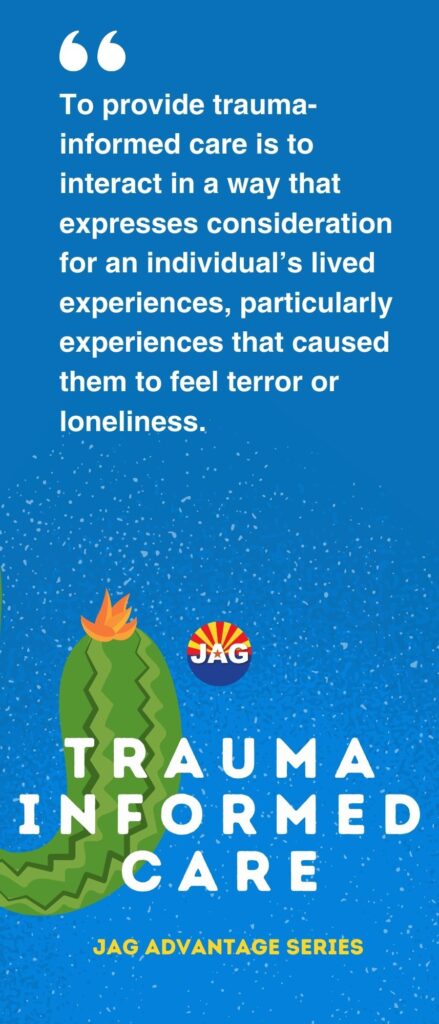To provide trauma-informed care is to interact in a way that expresses consideration for an individual’s lived experiences, particularly experiences that caused them to feel terror or loneliness. Many youth who enter a Jobs for Arizona’s Graduates program have survived trauma, or adverse childhood experiences (ACES), which impacted their ability to trust and feel safe in the world.
One way to provide trauma-informed care is to tailor your language so that you speak about participants using the words that they use to describe themselves. For example, a JAG Coordinator, or an individual who works with youth in a classroom setting, may ask all participants to introduce their pronouns with their name at the beginning of class. This way, everyone in the classroom knows the name and pronoun to use for each other; there is no need for assumptions, because everyone has shared what would make them feel safe and supported. This is called self-identification; normalizing this is particularly important for queer participants, who often experience marginalization and discrimination on account of their identity.
Another example of trauma-informed care is to offer support to participants who may not be receiving support elsewhere. If a participant has had difficulties with securing a job to help support their family, to provide trauma-informed care is to connect that participant to employer partners and career mentors, and walk with them through the resume-building and application process. This response might also include discussing emotional regulation at work with the participant to ensure that they feel confident in their professional skills.
Trauma-informed care (TIC) is one of the three pillars of the JAG Advantage, which ensures the personal and professional success of youth participants in the program. It can be seen in the ways in which JAG Coordinators and Staff interact with participants, and in the strength of the relationships formed in the program. Adverse experiences in youth may impact a participants ability to feel safe and their ability to learn the skills that are necessary for graduation.
Trauma-informed care is just one advantage we provide for our students. Hear what our student and alumni are saying about their JAG experience.
To learn how you can bring JAG to your school or community. Click HERE.


 (602) 216-9503 I info@jagaz.org
(602) 216-9503 I info@jagaz.org